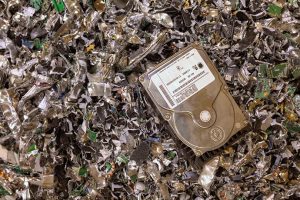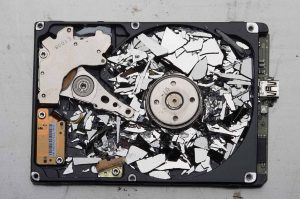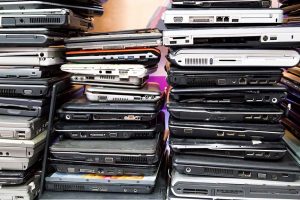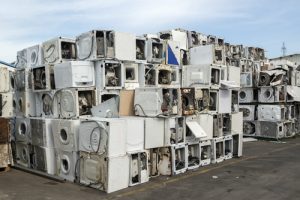 Samsung withdrew an environmental friendliness claim for a TV model after the manufacturer failed to prove its device met recyclability and reusability standards.
Samsung withdrew an environmental friendliness claim for a TV model after the manufacturer failed to prove its device met recyclability and reusability standards.

 Associate Editor Jared Paben has worked for Resource Recycling since December 2014. Most of his earlier career was spent as a reporter for the daily newspaper in Bellingham, Wash., but he also has experience working for the Oregon volunteerism commission and for Oregon nonprofits serving low-income populations. He can be contacted at [email protected].
Associate Editor Jared Paben has worked for Resource Recycling since December 2014. Most of his earlier career was spent as a reporter for the daily newspaper in Bellingham, Wash., but he also has experience working for the Oregon volunteerism commission and for Oregon nonprofits serving low-income populations. He can be contacted at [email protected]. Samsung withdrew an environmental friendliness claim for a TV model after the manufacturer failed to prove its device met recyclability and reusability standards.
Samsung withdrew an environmental friendliness claim for a TV model after the manufacturer failed to prove its device met recyclability and reusability standards.
 Are Apple’s new iPhones environmentally friendly? It depends on which rating system you ask.
Are Apple’s new iPhones environmentally friendly? It depends on which rating system you ask.
 Stakeholders have come to settlements in lawsuits over an explosion caused by batteries from used electronics in North Carolina.
Stakeholders have come to settlements in lawsuits over an explosion caused by batteries from used electronics in North Carolina.
 Sims Recycling Solutions’ consolidation of U.S. e-scrap shredding operations yielded financial benefits and more clearly drew a line between its shredding and reuse activities. That was one takeaway from a recently released annual report.
Sims Recycling Solutions’ consolidation of U.S. e-scrap shredding operations yielded financial benefits and more clearly drew a line between its shredding and reuse activities. That was one takeaway from a recently released annual report.

Joe Pickard speaks at the Resource Recycling Conference.
Ferrous and non-ferrous metals recovered from electronics and other sources have been volatile of late. Such uncertainty could continue as China considers limits on taking in some metal grades.
 For the e-scrap industry, business as usual may not cut it in the future. To help, this week’s E-Scrap Conference is providing information and connections that allow processors and others to stay on top of changes in the fast-evolving sector.
For the e-scrap industry, business as usual may not cut it in the future. To help, this week’s E-Scrap Conference is providing information and connections that allow processors and others to stay on top of changes in the fast-evolving sector.
 Scientists have developed an environmentally friendly way to recover rare earth elements from shredded electronic scrap without the need for pre-sorting of materials.
Scientists have developed an environmentally friendly way to recover rare earth elements from shredded electronic scrap without the need for pre-sorting of materials.
 A European project will release a data platform providing a wealth of information on changes in the end-of-life stream. The particulars can help processors better recover commodities from scrap electronics.
A European project will release a data platform providing a wealth of information on changes in the end-of-life stream. The particulars can help processors better recover commodities from scrap electronics.
 Though overall revenue fell, profits at global e-scrap company Sims Recycling Solutions grew significantly last year, according to the firm’s latest financial filings.
Though overall revenue fell, profits at global e-scrap company Sims Recycling Solutions grew significantly last year, according to the firm’s latest financial filings.
 Last year, lawmakers failed to pass legislation reforming Pennsylvania’s electronics recycling program. With the introduction of a bipartisan bill this year, some of them want to take another go at it.
Last year, lawmakers failed to pass legislation reforming Pennsylvania’s electronics recycling program. With the introduction of a bipartisan bill this year, some of them want to take another go at it.
